GreedFall was released on September 10. This is a new attempt by Spiders, known for The Technomancer, to create a truly great RPG. We tell you how its development proceeded.
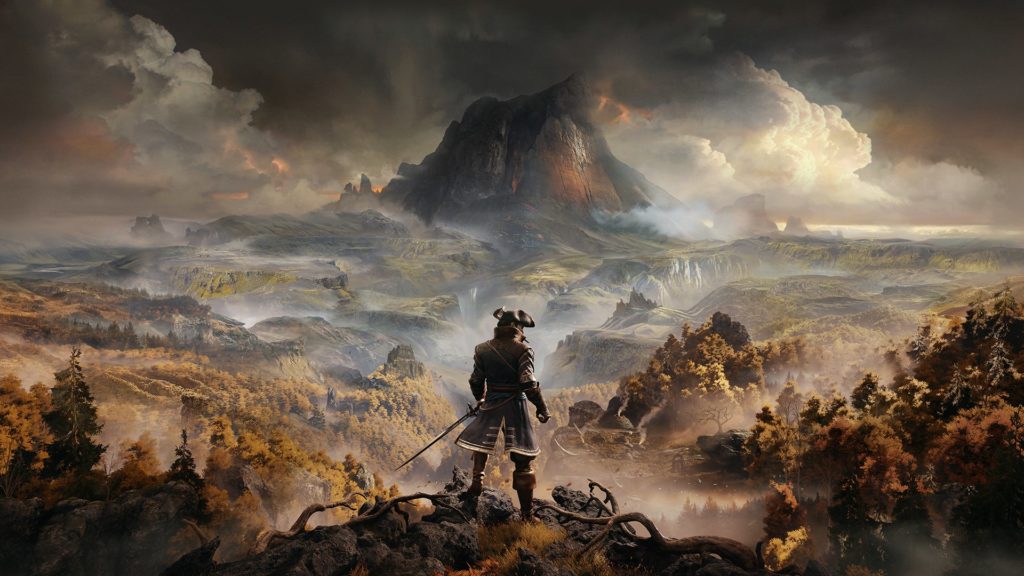
App2Top.ru I made a squeeze of the stream, which was hosted on the GDC channel by Bryant Francis, the editor of Gamasutra. He talked with GreedFall project manager Claire Leger Claire Léger and gameplay manager Sebastian de Ruzza (Sébastien Di Ruzza).
About the project
GreedFall is presented as a large, multivariate fantasy RPG inspired by the works of BioWare. It was released on PC, PS4 and Xbox One. The player is offered the role of a diplomat who is looking for a cure for the local plague (malichora) on a new land inhabited by aborigines, monsters and newly arrived colonizers. According to Spiders, the game can be completed entirely in 60 hours. The story quest will take about 35 minutes.
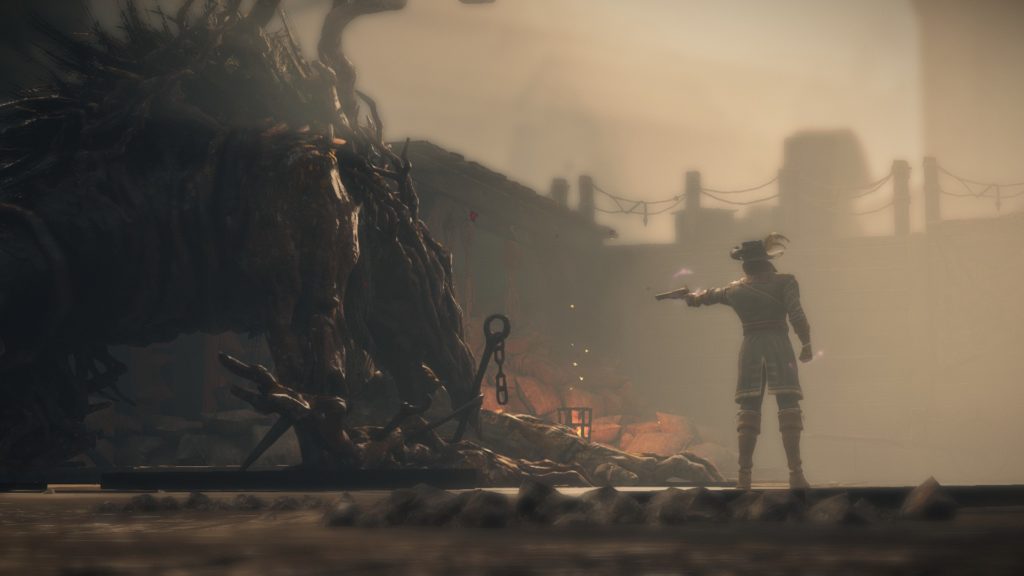
About the development cycle
- GreedFall development started three years ago. Spiders has not worked on any game for so long. It took two years to create it, but later the team convinced the publisher to give her more time to polish the game. Thus Spiders avoided large-scale crunches.
- The most active stage of development lasted the last six months. At this time, Spiders conducted playtests, improved the level design and especially carefully refined the combat system. A small studio of 40 people, who took on such an ambitious project, cleaned up about 3 thousand bugs.
- Spiders has set itself several goals. She wanted to take the best solutions of The Technomancer and improve the RPG formula based on the feedback received during the previous project. In GreedFall, they deliberately focused on research, expanded the crafting system and made the combat system more tactical. In addition, their task was to create an unusual setting and weave non-linear quests into it.

About choosing a setting
- From the very beginning, Spiders have been thinking about the idea of a confrontation between civilization and less developed aborigines. In the end, they came to a pseudo-historical plot about the colonization of new territories with an admixture of magic. When creating it, the developers were inspired by the history of the Celtic tribes.
- In GreedFall, the player tries to please several factions at once, not counting the aborigines on novaya Zemlya. However, Spiders didn’t want it to be a game just about a war between factions. First of all, they were interested in questions of humanity. They wanted the players to be able to get into the culture of fictional aborigines and wish to establish a connection with them.
- The plot of the game is not based on real events. But players from different countries (Spain, Portugal, France, USA) decided during playtests that the game is a metaphor for their countries.
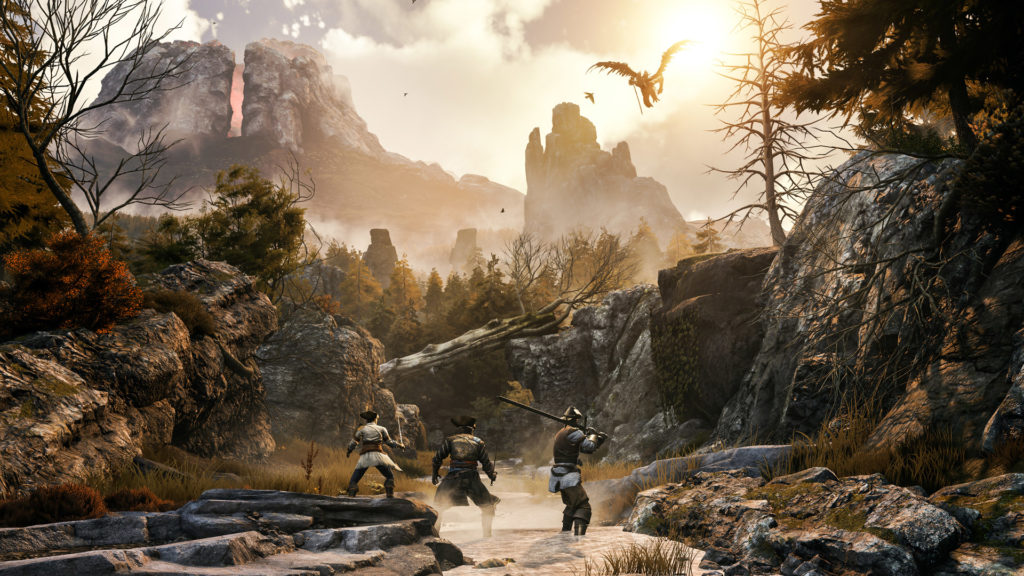
About gameplay
- The studio’s previous game, The Technomancer, was an action RPG. GreedFall is equal to classic role-playing games and even old-school RPGs. First of all, it affected the combat system and classes: warrior, mage, engineer.
- Users of The Technomancer complained about the lack of control over combat mechanics, especially over the critical damage system. It worked randomly and at the same time strongly depended on pumping a certain characteristic. In GreedFall, the studio decided to reduce the value of stats for a successful battle in favor of tactical gameplay, and also add a rage scale. It is consumed by pressing one of the three attack buttons and almost always deals critical damage.
- In addition, in the new game, the player is less dependent on classes. The pumping system was made unlimited. The player chooses skills and builds for himself and can develop the character in several ways, even in one playthrough.
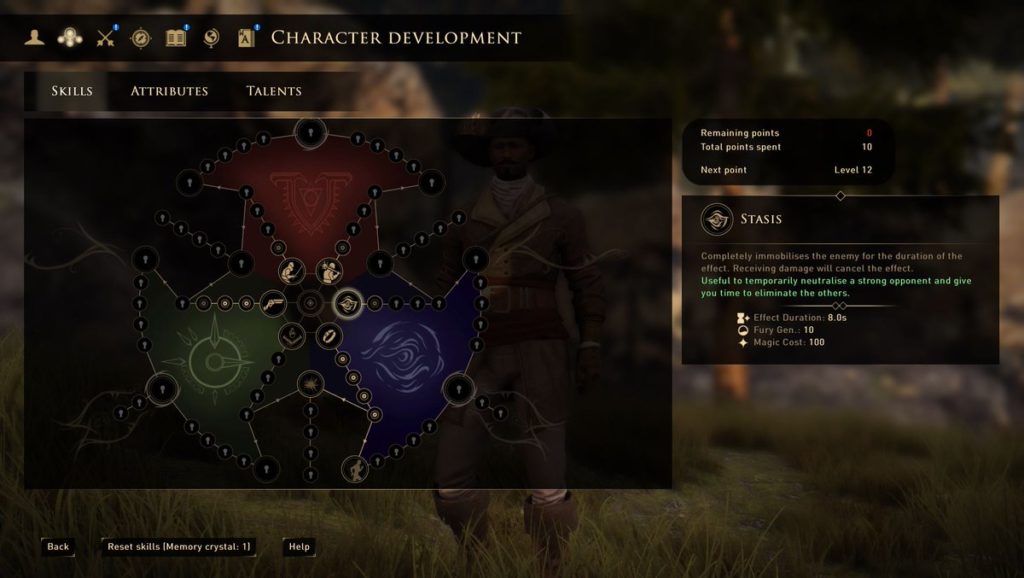
Skill Tree
- As for the skill tree, the developers wanted to get rid of the imbalance due to a smaller — and more diverse — number of skills. The skill tree has become ring-shaped: the player starts pumping from the center and puts points into any branches interesting to him.
- Spiders very quickly realized that it was necessary to immediately show the player the possibilities of choosing and combining different skills. At the beginning of development, such assistance was not provided, which complicated pumping.
- Also, during the development, the type of tactical pause has changed, which allows you to apply a skill, drink a potion, etc. At first it was represented by a radial menu. But it seriously limited the number of available skills and items, so the studio chose a horizontal slot menu.
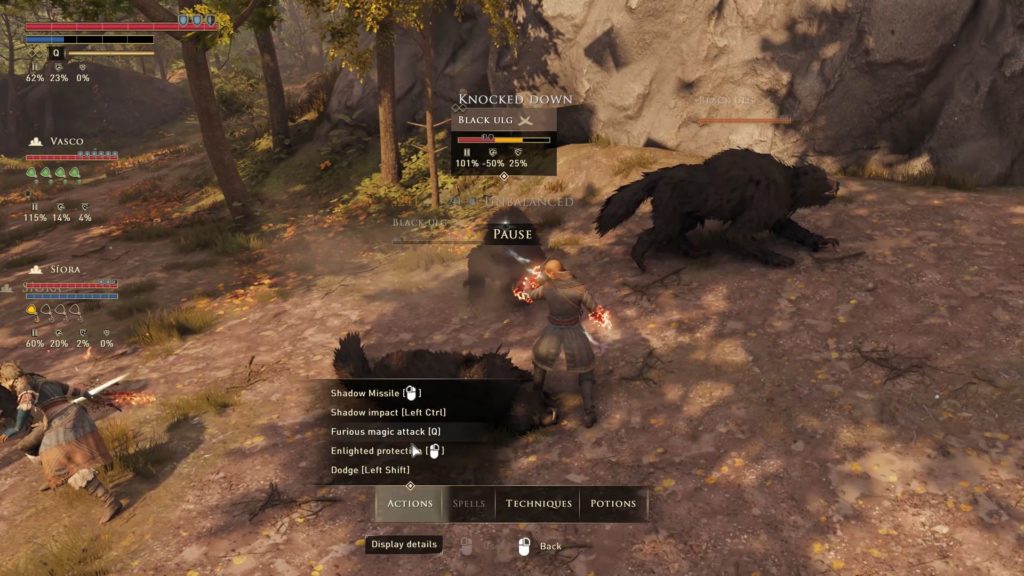
Tactical Pause Slots
- One of the most unusual features of GreedFall is the camp. As in some other RPGs, here the player can chat with party members, do inventory management or trade. But the camp itself appears in the transition between two large locations, replacing the standard loading screen. Spiders understood that during the loading screen, the player loses touch with the virtual world. Therefore, in GreedFall, locations are loaded up during a halt. Then a message is displayed at the top that it is possible to continue the journey.
About the narrative
- Quests in the game are divided into four types: main, side quests, satellite quests and faction quests. They are all interconnected. Establishing this connection was another task for Spiders.
- About a year ago, the studio completed all the narrative content, and then added it to the game all together. Then there were iterations, attempts to arrange and arrange these quests correctly.
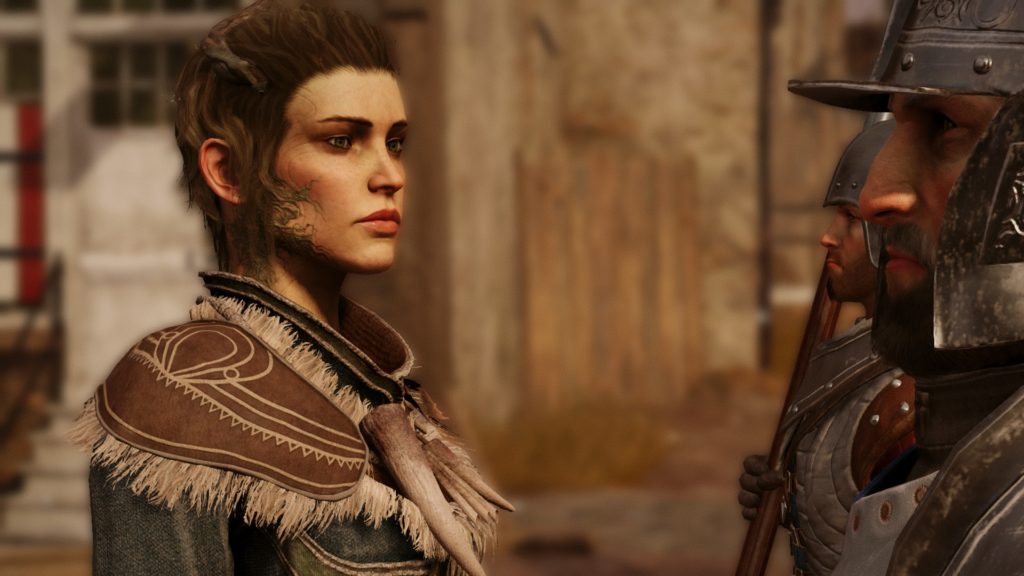
- Some quests changed once or twice, and some – 18. Among the latter are quests from the middle of the game and from the ending. On paper, the idea often seemed great, but in the game it turned out to be weaker. But Spiders felt that giving the player an interesting experience was the most important thing. Based on this, weak content was simplified or cut out without pity.
- There were difficulties with voice acting. Spiders admitted that it was not easy to write down so much text. When the game “started talking”, the sensations from it changed for the better, but it became more difficult to make quest iterations. For example, trying to improve a dozen quests, the studio was faced with the fact that it is impossible to change the already recorded dialogues.
- GreedFall doesn’t have as many staged cut scenes as it was originally intended. They were reserved for the most important plot points. Together they will make up about 1.5 hours in time.
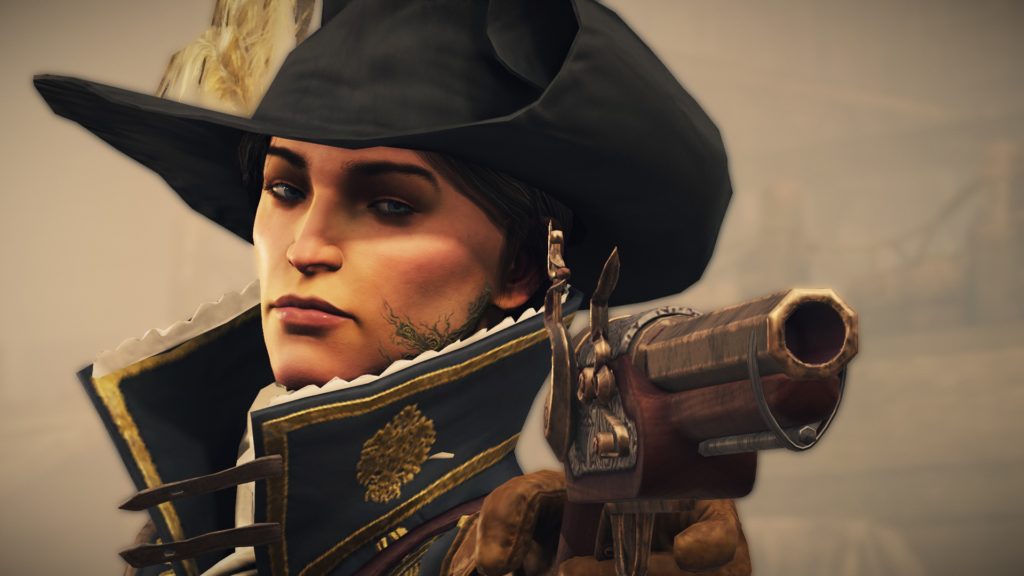
- But there are a lot of dialogue scenes here, and for them Spiders have created a technology that automatically changes the camera angle. Thus, the characters are shown from different sides during the conversation.
About iterations
- Many aspects of the game have undergone numerous iterations. For example, there were 15 GUI iterations (Spiders tried to ensure that there was enough useful information on the screen, but at the same time it did not interfere with the review). The travel system between locations has changed several times. As a result, we added transition points from one place to another and subsequently increased their number. Also, the combat system underwent the strongest changes throughout the entire development cycle.
- GreedFall has a talent system: another skill tree, many of which affect quests. When polishing the level design and quests, the most important thing was to explain to the player that certain talents open up new paths for him. Without this, the game seems linear. Therefore, Spiders modified the prologue. They focused on the features of level design in it. For example, they showed closed doors that can be opened either with a key found nearby, or with the help of a burglar’s talent.
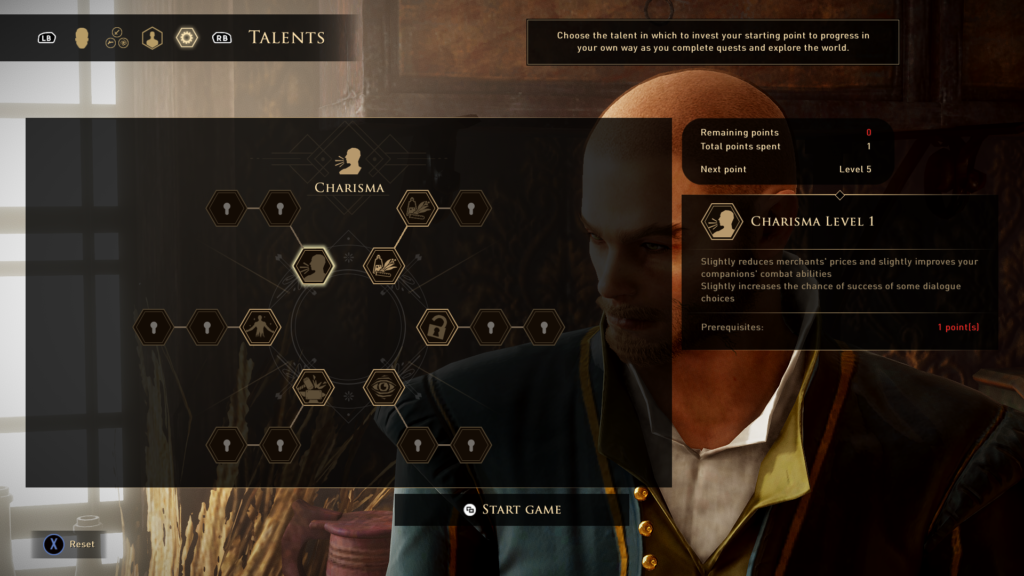
Talents
- The developers were looking for a balance between level design and narrative. They highlighted special cues in the dialogues in red in cases where they are unavailable due to a lack of talent. Thus the player understood: “If I invest in “Intuition”, I will be able to complete this quest in a different way.” Scriptwriters and quest designers worked together to ensure that the stories were branched. So the details of the quest may depend on the pumping of talents.
- Nevertheless, iteration of some aspects often does not allow you to pay attention to others. When polishing the combat system, the UI was devoted much more time than combat animations. Quest design received less attention than work on the local map and its interface.
- Spiders recognize that iterations are time-consuming, but still necessary. It’s better than creating the whole game from the first draft — and only at the very end of development to understand that it can’t entertain.
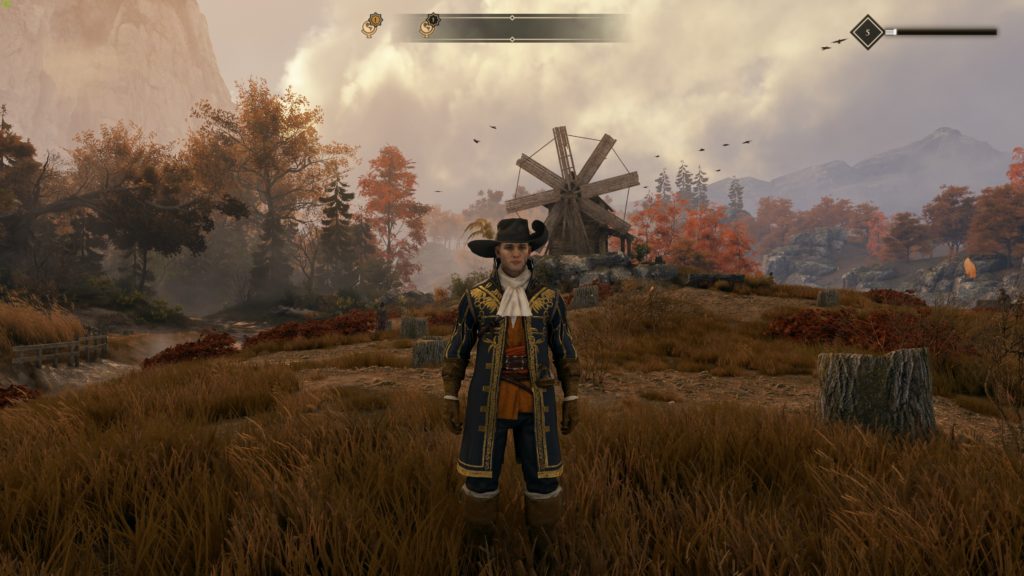
- In addition, iterations help to work out small details and make the environment more natural (for the same purpose, Spiders have reduced the size of some locations).
- Of course, you can polish the game indefinitely, but you still need to be in time for the release date. Spiders noted that some flaws can be corrected with patches after launch and it is better not to spend too much time on iterations. You need to take a break, play yourself and understand whether this or that innovation is in its place.
- Playtests also helped the studio here. The testers marked things in red that needed improvement. And the studio improved these things over and over again, until after the next playtest they turned green or were simply not mentioned in the reports. This equally signaled that iterations were no longer required.
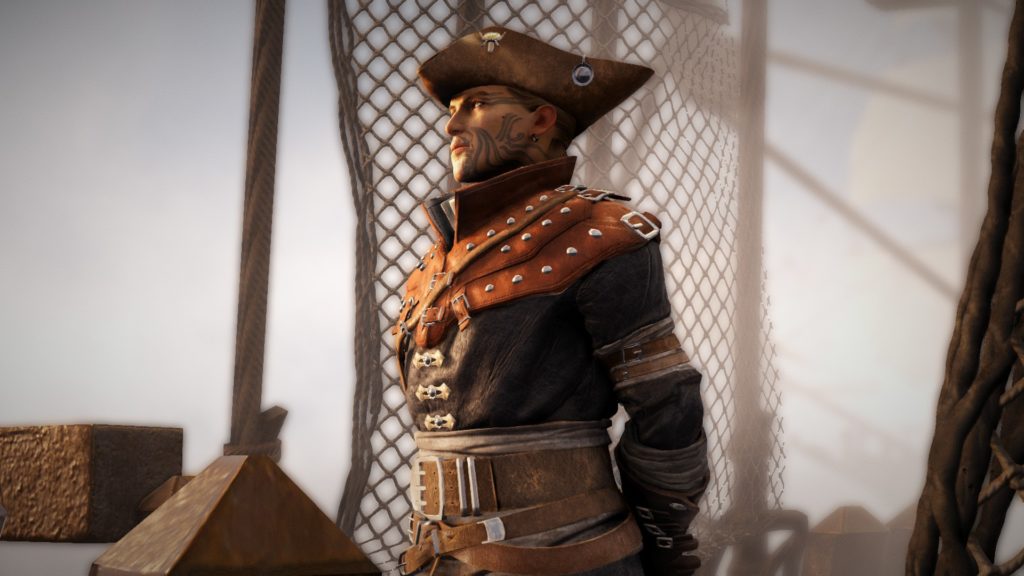
About management
- As already mentioned, Spiders prefer extended development time to crunches. No one from the team was overworking much.
- But even with this approach, there is a problem. The need to postpone the release for a year or even a month has a bad effect on the morale of the team. Therefore, Spiders recruited mostly enthusiasts who were passionate about the project and ready to work for as many years as needed. Such employees understand that the increased development cycle is only for the benefit of the game itself.
